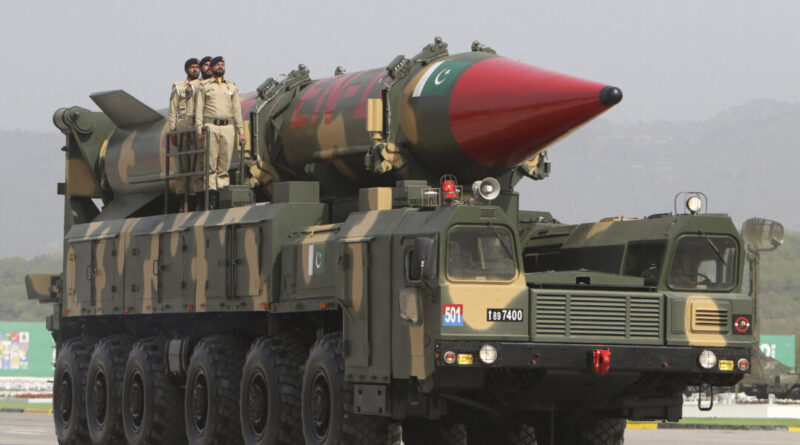US Expresses Concerns Over Pakistan’s Long-Range Missile Capabilities
A top U.S. official has recently indicated that Pakistan’s long-range ballistic missiles might be capable of reaching the United States, a claim that has been dismissed by officials in Islamabad.
Finer remarked, “The list of countries that possess both nuclear weapons and the missile capability to directly reach the U.S. homeland is very small, and they tend to be adversarial.”
He added, “It is difficult for us to view Pakistan’s actions as anything other than a growing threat to the United States.”
On December 21, Mumtaz Baloch, spokesperson for Pakistan’s foreign ministry, labeled U.S. concerns regarding its long-range missile capabilities as “baseless” and “unproductive for the overall relationship [between the United States and Pakistan].”
The concerns from Washington, as noted by an expert, are partly attributed to Pakistan’s significant strategic and technological partnership with China.
Nishakant Ojha, an anti-terrorism advisor to the United Arab Emirates and Iraq and a senior advisor to the board of the Washington-based Global Policy Institute, stated to The Epoch Times, “China’s regime has been crucial in bolstering Pakistan’s missile and defense capabilities.”
Ojha explained that the U.S. warning represents broader worries regarding the spread of advanced missile technologies and their potential misuse beyond the region. This concern is particularly valid given Pakistan’s developing alliances with adversarial nations such as communist China and North Korea.
Meanwhile, the United States and India have been strengthening their strategic partnership due to the common threat posed by China. India shares a vast border with China, which maintains military presence in disputed territories. New Delhi also relies significantly on Washington for defense procurement. According to Ojha, these developments have resulted in heightened regional tensions.
Finer noted that the United States has already conveyed its concerns regarding Pakistan’s missile program to Islamabad.
“Examining a map and assessing ranges, we believe this is fundamentally targeted at us, which is an unavoidable conclusion based on the information available to us,” Finer commented.
“Regrettably, it seems that Pakistan has not taken U.S. concerns seriously.”
Ojha suggests that Finer’s public disclosure about Pakistan’s missile advancements may serve as a tactic to “encourage Pakistan to align more closely with U.S. interests, particularly concerning counterterrorism and nuclear nonproliferation.”
By portraying Pakistan as a potential global menace, he argues, the U.S. could aim to secure concessions, such as minimizing Islamabad’s connections with adversarial countries or imposing limits on its missile capabilities.





